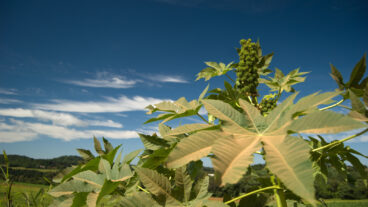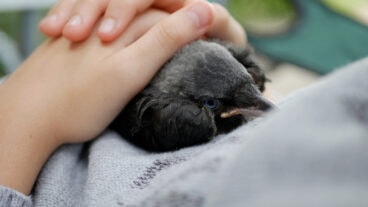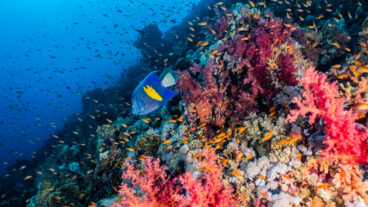The entire reason I got into organics was because I wanted to make a change – Varda Halpert Messer.
Varda Halpert Messer is the first to admit she’s not the type to go out and hug a tree. Nonetheless, the sleek dark haired, dark eyed no-nonsense Israeli “Veep” has eco-smarts and conscience. And she’s applying her knowledge, background and contacts to break into the global market of organics to promote widespread wellbeing.
Messer’s Tel Aviv based company, B nature, designs, manufactures and markets a line of organic baby and kids clothing made from 100% color grown (non-dyed) and natural dyed organic cotton. A family owned operation, B nature has been on Israel’s clothing scene for a year and recently debuted in the US retail market.
B nature CEO and founder Anita Halpert and CFO David Halpert – Messer’s parents – formed their design and merchandising house over a decade ago to provide quality togs to Israel’s major children’s apparel retailers Shilav and Golf. Messer joined forces with her parents after completing her army service, studying at New York’s Pratt Institute of Design and returning to Israel’s high powered world of corporate graphic design.
“I left the graphics and advertising world because I was working around the clock and I got bored,” Messer told ISRAEL21c. “I started B nature because I think you reach a point in life when you say: ‘I have enough. My kids have enough. It’s time to do something from the heart.’ It’s not enough to work. You have to have something that’s extraordinary for the soul.”
The ‘good for the soul’ venture turned out to be a carefully planned, closely monitored line of clothing for babies. From selecting cotton type for product to choosing natural-only dyes, to traveling to factory sites to ensure fair labor practices are in place, B nature “runs with the pack” when it comes to setting standards for today’s new eco-minded, boutique buying consumers.
One factor, however, has proven to be a challenge: B nature works with two factories in separate Chinese provinces that grow, sew and piece together their garments. US “green retailers” sometimes back off when the C name comes to the fore.
“In clothing manufacturing we understood a long time ago that the West is using the East to produce products cheaply. But the entire reason I got into organics was because I wanted to make a change. To show that we can make a product and preserve human rights and give workers fair salaries and get rid of the myth that everything coming from China these days is tainted with poison or child labor,” said Messer, who personally visits B nature factories in Shandoong and Canton Provinces several times yearly.
Proving ground has been in the paperwork: B nature has Skal (Organic Inspection) Certification and belongs to the Organic Trade Association (OTA). Getting Fair Trade Certified – a fairly new global standard, has proven more challenging.
“The process has been daunting,” reports B nature sales and marketing manager Valerie Warshaw. “I started looking into Fair Trade Certification when retailers reacted negatively to mention of China. Sure, I can tell them: “But our workers own company shares! They have benefits! Our standards are higher than most US factories!’ but why should someone take my word for it?”
In her search for certification, Warshaw discovered a maze of organizations and only two governing bodies giving an overall stamp of approval for North American consumers. Even then, Warshaw says, the US body is currently approving only food-related products.
Home grown, however, presents a dilemma. “People want 100% organic because they know it means no chemicals or pesticides in the clothing and that also means fewer chemicals polluting the environment,” says one US retailer who prefers to remain anonymous. “But say it’s a 100% organic ‘Made in the USA’ versus a B nature baby bodysuit; the buyer pays three times the price. You can’t have it both ways.” If standards are up to par and fair labor is in place, contends Warshaw, consumers CAN have it both ways. That’s what she and Messer are trying to prove.
In the interim, the B nature product is faring well at home and abroad. “People are more aware of organic and environment than other people realize,” Jenny Cudmore, owner of Crunchy Granola Baby Boutique in Salem, Massachusetts says. “They buy organic clothing for all kinds of different reasons: environmental, quality, baby skin sensitivity issues. A man came in yesterday who is definitely not crunchy but he saw something on the news about how dangerous the flame retardant chemicals in pajamas are. He bought B nature pajamas because of what he saw on the news.”
B nature has distributors in the US and South America and the management team is looking to break into the larger chains – Macy’s, Bloomingdales and Neiman Marcus – in the future. “They loved the samples,” says Messer.
In the interim, Messer and Warshaw will attend The BioFach World Organic Trade Fair in February and the All Things Organic Conference in Chicago next spring.
The future includes developing innovative product techniques like soy and bamboo fibers – both are undergoing testing – and continuing to work with natural dye and color grown cottons. Ultimately, it’s about improvement on a grand scale.
“It’s a great business to work in,” Messer summarizes. “You find that the people in organics are more open, more fair, the salaries are better and human rights are preserved. That’s because the people involved in the process feel like they’re part of something bigger than themselves and that by doing this, we’re all making the world a better place.”![]()












